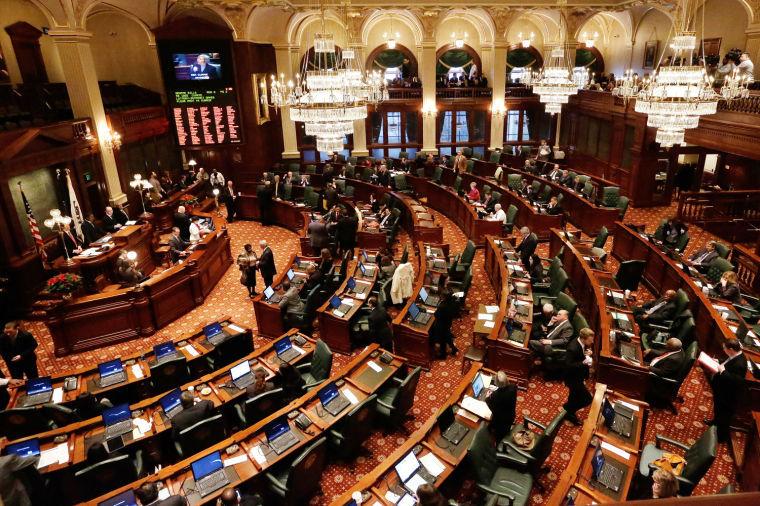NIU no fan of pension deal
December 4, 2013
NIU wanted a resolution to the state’s pension crisis, but it doesn’t like the one it got in a controversial reform bill that passed the General Assembly Tuesday.
The measure will reduce and, in some instances, skip cost-of-living increases and push back the retirement age for state employees, which includes NIU faculty and staff. The bill will also slightly decrease the amount state employees have to contribute to the system.
The university and some local politicians think the bill will also damage NIU’s ability to lure in and retain faculty — something it already struggled with amid pension woes — because it changes employee benefits, potentially sending faculty looking for out-of-state jobs with better pension packages.
The bill, which Gov. Pat Quinn has said he will sign, is designed to eliminate Illinois’ $100 billion pension debt.
The reform is supposed to save the state $160 billion over 30 years, with $90 to $100 billion of those savings coming from benefit cuts.
“We continue to have concerns this legislation will have an adverse effect on our faculty, staff and annuitants and place NIU and Illinois’ public universities at a disadvantage in recruiting faculty and staff,” said NIU President Doug Baker in a statement Tuesday.
NIU has had 42 percent turnover in four years, double the normal level for a university.
Baker and other state public university leaders sent a letter to Quinn earlier in the week, saying they believed “the bill will be detrimental to higher education in Illinois and ultimately to the overall economy of the State of Illinois” because of their concerns it will stymie university recruitment and retention and negatively affect efforts to create jobs through university research, among other reasons.
Critics of the bill also contend it violates contract law and Illinois’ constitution, which bans diminishing or impairing state pension system benefits.
Supporters and the opposition have said the matter will likely end up in court, with State Treasurer Dan Rutherford saying “litigation is inevitable” and Baker saying NIU anticipates the reform “legislation will quickly move to the courts.”
NIU falls into the territory of Rep. Bob Pritchard, R-Hinckley, who voted against the bill and said he thinks it is unconstitutional. Pritchard said he thinks the measure will ultimately lead to increased state spending in non-educational areas.
Pritchard said the bill was created and passed “without consulting all affected parties,” including the employees who will see their benefits changed.
Rep. Tom Demmer, R-Dixon, said in a statement that he made a “difficult decision” in voting for the legislation, which passed 62-53 in the House, getting two more votes than was required.
The bill passed 30-24 in the Senate, just meeting the minimum 30 required to pass.
The bill will provide the pension system with stability and lessen the financial burden on taxpayers, Demmer said.
“Change is never easy, but the adjustments in [the bill] are essential to create stabilization within our pensions systems to have the reassurance that we will continue to offer good retirement benefits to our teachers and public sector employees,” Demmer said.







